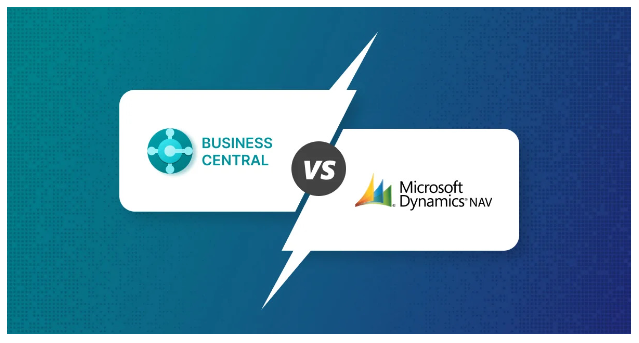The First Steps Entrepreneurs Should Take if They Want to Start a Grocery Business
Starting a grocery business is lucrative due to the constant demand for food and household products. However, owning a grocery store franchise requires careful planning, a substantial investment, and a clear market understanding. Whether you are a seasoned businessperson or a newcomer, embarking on this journey involves several critical steps to ensure success.

This article will guide you should you want to start a wholesaler grocery business, providing insights into market research, business planning, financing, and more.
Conduct Thorough Market Research
Understanding the demand for different products, identifying potential competitors, and recognizing customer needs are essential. Market research will help you determine the viability of your business idea and identify gaps in the market that your grocery business can fill.
Develop a Solid Business Plan
This document should outline your business goals, strategies, target market, competitive analysis, and financial projections. It should also include your marketing and sales strategies, organizational structure, and operational plan. A detailed business plan will guide you through the startup phase and help attract investors and secure financing. It should also include:
Secure Financing
Starting a grocery business requires significant capital for purchasing inventory, leasing warehouse space, and covering operational costs. Explore various financing options such as bank loans, venture capital, angel investors, or crowdfunding. Prepare a compelling pitch and present your business plan to potential investors to secure the necessary funds. Additionally, government grants or subsidies should be considered for new businesses in the food industry.
Choose a Strategic Location
Choose a location accessible to major transportation routes to facilitate efficient delivery and distribution. Proximity to your target market and suppliers can reduce costs and improve turnaround. Evaluate infrastructure and local regulations before finalizing your location.
You should also consider the scalability of your chosen location. As your business grows, you need more space for inventory and operations. A location with room for expansion or one situated in an area with additional leasing opportunities can save future relocation costs. Also, ensure the location has adequate security measures to protect your inventory and assets.
Establish Relationships with Suppliers
Building strong relationships with suppliers is essential for a grocery business. Research and reach out to reliable suppliers who can provide quality products at competitive prices. Negotiate favorable terms and establish long-term contracts to ensure a steady supply of goods. Having a diverse range of suppliers can also mitigate risks associated with supply chain disruptions.
Set Up Efficient Inventory Management
Effective inventory management is crucial to maintaining a steady supply of products while minimizing costs. Invest in robust inventory management software to track stock levels, manage orders, and forecast demand. Implementing an efficient inventory system will help you avoid overstocking or stockouts, ensuring you promptly meet customer demands.
- Regular audits and updates will keep your inventory accurate and up-to-date.
- Consider implementing a just-in-time (JIT) system to reduce holding costs and waste.
- Utilize technology for real-time inventory tracking and demand forecasting to make informed purchasing decisions.
- Establish clear protocols for inventory handling, including proper storage conditions for perishable items, to maintain product quality and safety.
- Regularly review inventory turnover rates to identify slow-moving items and make necessary adjustments.
Comply with Legal and Regulatory Requirements
Obtain the necessary licenses and permits, such as business registration, health and safety certifications, and food handling permits. Ensure compliance with local, state, and federal regulations related to food safety, labeling, and storage.
- Stay informed about changes in food safety regulations and industry standards.
- Implement stringent quality control measures to ensure all products meet regulatory requirements and consumer expectations.
- Develop a comprehensive understanding of liability issues related to food distribution and ensure you have appropriate insurance coverage.
- Regularly train staff on compliance and food safety practices.
Develop a Marketing Strategy
A strong marketing strategy is essential for attracting customers and building brand awareness. Identify your target market and develop a plan to reach them through various channels. Highlight your unique selling points, such as product quality, competitive pricing, and excellent customer service. Engaging in marketing campaigns can help establish your brand and sales.
Utilize digital marketing tools to reach a wider audience:
- Create an informative, user-friendly website showcasing your product range, pricing, and ordering process.
- Leverage social media platforms to engage with customers, share updates, and gather feedback.
- Participate in industry trade shows and networking events to connect with potential clients and suppliers.
- Consider offering promotions, discounts, or loyalty programs.
Invest in Technology and Automation
Leveraging technology can streamline operations and improve efficiency in your wholesaler grocery business. Invest in a robust ERP system to integrate various business processes, including inventory management, order processing, and customer relationship management. Automation tools can also enhance logistics, reduce manual errors, and improve overall productivity. Stay updated with the latest technological advancements to stay competitive.
Hire and Train a Competent Team
Hire skilled professionals with experience in logistics, sales, customer service, and inventory management. Provide comprehensive training to ensure they understand your business processes and can deliver high-quality service. Foster a positive work environment and encourage teamwork and learning to enhance productivity and employee satisfaction.
- Develop a thorough hiring process to attract qualified candidates, including detailed job descriptions and clear expectations.
- Offer competitive salaries and benefits to attract top talent.
- Provide ongoing training programs to keep employees updated on industry trends, new technologies, and best practices.
- Encourage a culture of open communication, collaboration, and recognition to boost morale and productivity.
- Regularly evaluate employee performance and provide constructive feedback to support their growth and development.
Conclusion
The key to thriving in the wholesaler grocery industry lies in continuous adaptation and responsiveness to market trends and customer needs. With thorough preparation, strategic planning, and a commitment to excellence, you can establish a profitable and sustainable grocery store business and carve out a successful niche in this important industry.

